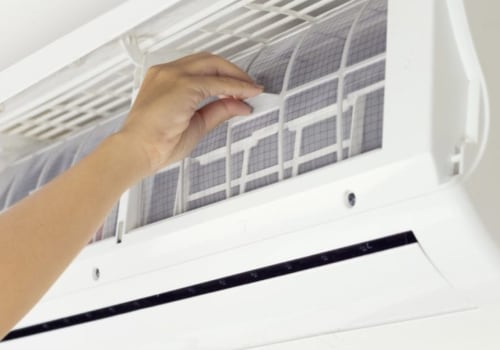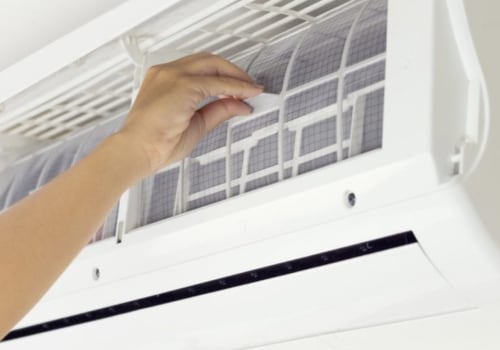David Heacock Discusses the Importance of AC Filters in Minimizing Allergens and Pollutants in the Home
David Heacock highlights the importance of advanced AC filters in improving indoor air quality. These filters are essential for minimizing allergens and impurities present in residences. Composed of materials like HEPA and activated carbon, they efficiently trap detrimental particles. Remarkably, these filters can retain up to 99.97% of harmful elements, which aids in alleviating breathing difficulties and sensitivities.
Consistent upkeep and prompt filter changes are important for ensuring HVAC mechanisms function optimally. Opting for filters with elevated MERV ratings can yield improved capture of dander, pollen, and microscopic organisms. Grasping these factors is necessary for fostering a more wholesome living atmosphere, resulting in notable long-term advantages.
Key Takeaways
- Advanced AC filters like HEPA and activated carbon are designed to trap a significant percentage of airborne irritants and particles.
- Filters with higher MERV ratings demonstrate enhanced capability in capturing smaller particles, resulting in better indoor atmosphere.
- Regular maintenance along with timely filter changes is crucial for sustaining effectiveness in reducing allergens.
- Cleaner indoor air from these filters can result in fewer respiratory issues and lower reliance on medications.
- Selecting the right air filter based on specific allergens like pet dander and pollen boosts health benefits for households.
Importance of Indoor Air Quality
Indoor air quality significantly affects overall health and well-being. Poor conditions can cause health problems such as allergies, respiratory issues, and fatigue. Focusing on air purification helps improve the environment and reduce these risks.
One main advantage of air purification systems is allergen reduction. Such systems capture dust, pollen, pet dander, and other irritants circulating in homes. Removing these particles creates a cleaner atmosphere, essential for individuals with allergies or asthma.
Investing in an effective air purification system enhances indoor air quality and contributes to a more comfortable living space. Regular maintenance of HVAC systems is vital for optimal performance, ensuring filters remain clean and functional.
Incorporating air purification into homes leads to noticeable improvements in daily comfort. Prioritizing indoor air quality serves as a proactive step toward a healthier lifestyle, fostering a space where thriving and breathing easier become possible.
Overview of Advanced AC Filters
Advanced AC filters significantly contribute to enhancing the quality of the atmosphere within a building by trapping various airborne particles with high effectiveness. These filters utilize cutting-edge technology to ensnare dust, animal fur, pollen, and even minuscule particles that conventional filters might miss. Utilizing high-efficiency particulate air (HEPA) and activated carbon materials, advanced filters significantly decrease harmful allergens circulating within homes.
Investing in advanced AC filters not only upgrades HVAC systems but also acts as a proactive measure for allergy prevention. Such filters enhance well-being, especially for those with respiratory issues or allergies. Working diligently, they ensure cleaner and fresher air for breathing.
Regular maintenance of these filters is necessary for peak performance. Checking and replacing them as recommended allows continued effective function. By staying aware of filter technology and its advantages, smarter choices can be made for home air quality, ultimately creating a healthier living space for families.
How Filters Reduce Allergens
Filters reduce allergens effectively by utilizing advanced materials and designs that capture harmful particles before they spread within homes. This process relies on filter performance, which depends on the type of material and the design features. High-efficiency particulate air (HEPA) filters can trap up to 99.97% of particles as small as 0.3 microns, meaning common allergens such as dust mites, pollen, and pet dander are significantly eliminated from indoor air.
Investing in a quality filter not only boosts HVAC system performance but also encourages allergen removal throughout living spaces. Changing filters regularly helps maintain effectiveness, as clogged options can hinder airflow and instead trap allergens.
For optimal allergen reduction, consider a filter with a high MERV rating, indicating its capability to capture smaller particles.
Selecting the right filter along with proper maintenance creates a healthier indoor environment, leading to fewer allergens and improved air quality.
Impact on Health and Well-being
Breathing clean air greatly improves health and overall well-being. Upgrading to advanced AC filters significantly improves the atmosphere within your home, fostering a more pleasant living area. By minimizing irritants and harmful substances, these filters contribute to relief from breathing difficulties, sensitivities, and various health concerns. This results in enduring advantages, enabling individuals to inhale with ease and appreciate an enhanced lifestyle.
Environmental effects play a significant role as well. Minimizing pollutants indoors contributes to a cleaner atmosphere outside. This is especially crucial in urban areas where air quality often suffers. Cleaner indoor air can lessen reliance on medications for allergies or asthma, further boosting well-being.
Prioritizing clean air yields cumulative effects. Longer use of advanced AC filters results in improved health. Increased energy levels, better sleep, and a heightened sense of vitality often follow.
Investing in these filters means investing in future health, resulting in a more comfortable home environment that benefits both inhabitants and the planet.
Choosing the Right Filter
Choosing the right AC filter plays a vital role in improving indoor air quality and reducing allergens. Begin by evaluating filter efficiency, which shows how effectively it captures particles. Higher MERV (Minimum Efficiency Reporting Value) ratings indicate superior filtration, so select a filter with a MERV rating that matches your household requirements. Households with pets or allergies should consider filters designed for trapping pet dander, pollen, and dust mites.
Also, think about maintenance to keep the AC system functioning well. Regularly checking and replacing filters every 1-3 months can greatly improve air quality and extend the lifespan of the HVAC system. Some filters can be washed, which offers a cost-effective alternative if maintained properly.
Ensuring proper fit for the filter is crucial. A poorly fitted filter won't operate efficiently, so verify specifications before making a purchase. Selecting a suitable filter and adhering to maintenance practices leads to a fresher, healthier environment for families. Prioritizing air quality creates a more comfortable, allergen-free home.
Frequently Asked Questions
How Often Should I Replace My Advanced AC Filter?
Replace an advanced AC filter every 3 to 6 months, considering its lifespan and air quality in your home. Regular upkeep guarantees efficient operation while minimizing allergens and pollutants.
Are Advanced Filters Compatible With All AC Systems?
Advanced filters may not suit every AC system. Checking system specifications is essential to confirm compatibility. Choosing the right filter can enhance efficiency and improve air quality, so make informed selections for your setup.
Can Advanced Filters Help With Odors in the Home?
Advanced filters effectively improve home air quality and odor control. Unpleasant smells can be reduced as these filters trap particles responsible for bad odors. Regular maintenance remains essential for ensuring optimal filter performance and longevity.
Do Advanced Filters Require Special Maintenance?
Yes, advanced filters need maintenance. Regularly cleaning or replacing them helps maximize lifespan and efficiency. Proper techniques ensure effective allergen reduction while maintaining optimal air quality in your home.
What Is the Cost Difference Between Standard and Advanced Filters?
Considering costs between standard and advanced filters shows advanced options usually have a higher initial price. However, these filters often need replacement less frequently, which can lead to savings on maintenance in the long run.
Learn more about HVAC Care from one of our HVAC solutions branches…
Filterbuy HVAC Solutions - Miami FL - Air Conditioning Service
1300 S Miami Ave Apt 4806 Miami FL 33130
(305) 306-5027
https://maps.app.goo.gl/Ci1vrL596LhvXKU79



